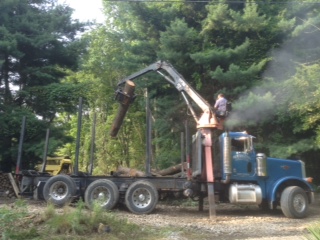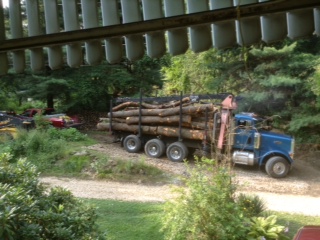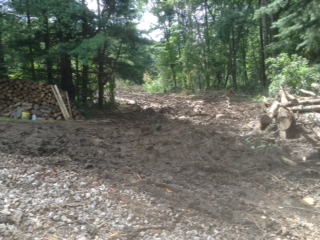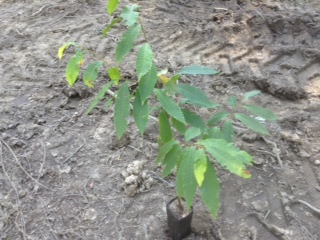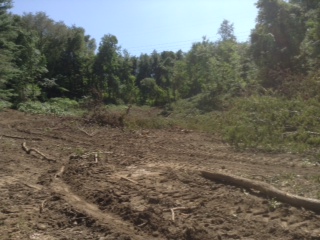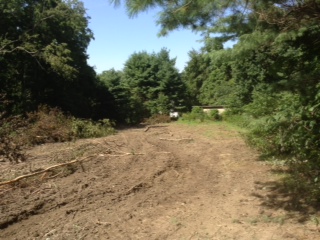
|
THE LIBERTARIAN ENTERPRISE Number 784, August 17, 2014 The IRS Will Never Find Us in the Asteroid Belt
From the Rust Belt to the Asteroid Belt: Freeman Dyson Calling All Heretics
Attribute to L. Neil Smith's The Libertarian Enterprise Freeman Dyson; the physicist who almost gave us the atomic pulse drive rocket known as Project Orion is one of the few surviving giants among the visionaries from the Space Race in the 1960s. And at age 90 he's still going strong. As evidenced in this online lecture discovered earlier this week concerning Heretical Thoughts About Science and Society. A very refreshing point of view from the get go which makes the case that we need a lot more people to challenge the conventional wisdom of the day. Dyson has never been a stranger to that sort of thing having written much about human expansion into space and dared to declare that the IRS Will Never Find Us in the Asteroid Belt! Which moved me to nominate him as a Tea Party Patron Saint not so long ago. From what I read of his works—Freeman Dyson seems to have a rare combination of scientific genius and a gut feeling for the spirit of rugged individualism that is a hallmark of the frontier culture of Greater Appalachia that is still manifest to some extent here in its ancient heartland of Southwestern Pennsylvania. Land that I Love! Back in the day when everyone was beating the drums for the ecology crusade and the slogan "It's Not Nice to Fool Mother Nature" was all the rage Dyson wrote : Disturbing The Universe—which I imagine had a lot to do with what had to be some of his most heretical ideas—chopping up Jupiter to build a "Dyson Sphere" around the sun and seeding comets with genetically engineered "Dyson Trees"—which inspired a lot of neat SF ideas—like the Sky Sower in Gregory Benford's Great Sky River and the ones that generated a canopy that held down a breathable atmosphere for Mr Thoggosh & cohorts on the asteroid 5023 Eris in L. Neil Smith's Forge of the Elders. As El Neil had said a while back: "There you'll find a whole forest of them!" In addition to "global warming denial", spaceships propelled by atomic bombs and ambitious plans to rearrange the Solar System another politically incorrect scientific heresy of Freeman Dyson is his openness to the idea that much of what we consider "fossil fuels" may actually derive from non-fossil sources. I first started hearing about abiotic petroleum and gas from Greater Appalachia's renowned talk radio host; Jim Quinn of the late America's Morning Show—and it makes plenty of sense because there are obviously other processes that generate hydrocarbons than the burial of dead plants and algae because of their abundance in the Cosmos—in interstellar clouds and in the atmospheres and bodies of obviously lifeless planets, moons and asteroids. You cannot discount fossil sources entirely since there is swamp gas and some strata that is obviously laid down from the plankton rich muck of ancient seabeds. Dyson mentioned in the lecture that those rocks get recycled when plates of the planetary crust get subducted down and melted in the mantle. And there is probably plenty of carbon plus water inside the Earth which has been in there since its formation and hydrocarbons from those sources can seep up and crate virgin deposits of oil and gas and probably accounts for recent reports of depleted old fields replenishing. Which begs to wonder if the Marcellus Shale and other deep strata are from this source? Time will tell whether they refill at a faster rate than shallow deposits—being closer to the sources of abiotic hydrocarbons. I bet environmentalists hate the idea of such because their whole ideology—and that of most of the Left in general—is based on a Zero Sum argument that we are running out of everything and that a rationing economy (with them in charge of everything) is essential to avoid catastrophe and ensure that resources are utilized wisely and distributed in a fair and equitable manner. Scarcity is their first refuge for justifying control—and when that argument is debunked—then they fall back onto carrying capacity as reason for locking up resources and create artificial shortages as reason for limiting growth and freedom. Rationing carbon emissions works so well for them because as Quinn often said—virtually every human activity emits CO2 and that gives them reason to exercise universal authority over all economic activities—ie get their hands on all the levers and switches of the economy. Which is the progressive central planner's ultimate wet dream minted in the days of the late 19th & early 20th Centuries when America was rapidly industrializing and modernizing. It occurred to me quite a while ago that there are two sides to the Progressive coin on this issue. The elitist side that would probably be defined by Teddy Roosevelt and the aristocratic conservatism of the conservation movement (and the gate everything off argument of the people who used to tell me that keeping fish and turtles was not a right). And then you have the egalitarian argument of the FDR Economic Bill of Rights and the modern wildlife management system promising open spaces and outdoor recreation for the general public which is sort of a free lunch promised by politicians. Who I strongly suspect ; secretly ascribe to the philosophical tenants of the first camp but say what they must to get elected and stay in office. Where I think this is all going is toward a future in which most human labor will be rendered obsolete and the elites are now looking for opportunities to dispose of surplus population—either directly through another major world war or indirectly by slow starvation or warehousing schemes involving forced relocation and welfare states with incentives or mandates to control human reproduction. Where child bearing and parenting are licensed and regulated—based on genetic screening or a lottery system (depending on the preferences of those in charge—Elitist or Egalitarians—the latter would consider privileges awarded by merit or genetic fitness to be anathema and would insist on the lottery approach). Then you have extreme misanthropic deep ecology nutcases who would go with outright democide in the form of mass executions, starvation or release of biological weapons. I unfortunately did not get to listen to the whole Freeman Dyson lecture because I found it at the end of a long night shift walking out to the parking lot and would probably have fallen asleep listening to it in entirety in my car! And my WiFi at home is a bit slow and hell on my stingy data plan! My friend Ray said that he liked the optimistic outlook of lecture and that some of the "naturists" described by Dyson were very reminiscent of people we used to argue with in the native fishes forum we belonged to back in the 1990s and early 2000s. Was a very wet ride home that morning. The bank in the staging area was torn up bad. Looked like they had come out early and moved more logs down and then quit when the rains moved in. Turned out they had come back in the evening to work some. That from the helper who came out again this afternoon to do more. It looks really bad now. When it is all done—I will have them scrape off some dirt from farther up in the pasture to rebuild the bank and make it look better than before. Heretics disturbing the Universe. The carnage is terrible but the reward will be the eventual improvements to the driveways and opening of the skyline that will work wonders for the local ecology. My pond and the wild garden and turtle pens will get a new lease on life. It will be like the good old days when so much of what is languishing will grow vigorous again. In many ways disturbance is good. Old growth is stagnation. A little of the latter mixed into a diverse matrix of different stages of open land and regrowth is probably the best thing. Too much of it and it is just big old trees and very few other species adapted to deep shade—usually ferns which are the only thing that the deer won't eat when there is no grass and all other palatable foliage within reach is browsed out of existence. And then there are the issues of pests and diseases that can cut like a scythe through old, even aged stands of trees—especially single species monocultures. It was said that before the Chestnut Blight—a quarter of all trees here in Greater Appalachia were American Chestnut. That probably helped the Asian chestnut blight spread as quickly as it did in the early 20th Century. As I look forward replanting some of my property I am going to go it slow which in addition to spreading out the expense will also space out the age classes of the trees which will replace some of the old ones on the less level areas harvested. They are going to be a mix of species including some American Chestnut hybrids with Asian genes for blight resistance. No apologies here for the purists. This landscape has been disturbed and occupied by humans for centuries and for better or worse I intend to make something valuable of it that can be passed on to future generations. Which will probably be better than what seems to be happening to public lands out west—from where I have been hearing the horror stories of the fires and degradation of the ecosystems that are resulting from the "Hands off Mother Nature" philosophy. Which probably compounded the previous policies of mindless fire suppression that allowed the buildup of too much undergrowth. Nature does not always know best—though in some ways the blind forces of the natural universe have a better track record than the central planners. And private landowners with a vested interest in maintaining their property and love of the land can respond on a more human scale when it comes to managing forests, creating wildlife habitat and controlling invasive species. Like Quinn said: Liberty is the Solution to the Human Condition. And it will also get us to the Asteroid Belt someday where in the words of Freeman Dyson: The IRS will never find us—and in mine: the EPA, the Fish & Wildlife Service—and a whole alphabet soup of governmental agencies will no longer harass us—and there will be plenty of rocks to throw at any space fleet the UN might send our way. Long Live the Tea Party!
Giants of the Space Vision minted back in the days of the Space Race when America still aspired for a coherent vision to explore and colonize space. Freeman Dyson who gave us the idea for atomic powered rockets and rapid flight around the solar system. Dandridge M. Cole: who advanced the idea of Microworlds built from hollowed out asteroids capable of functioning as both stationary and mobile habitats. Some of which could be adapted as a slow boat approach to interstellar travel. And of course Gerard K. O'Neill—father of the L-5 space colony built to support lunar mining and the construction of orbiting Solar Power Satellites. Those are the three who most often come to mind when I am thinking of space colonization. There are others. Future contributions to this journal will reflect and reveal them. Additional End Notes: Tea Party Patron Saints.
In addition to Freeman Dyson I also nominate Marshall T. Savage (The Millennial Project and the concept of "Solaria" which I came to call "Greater Solaria" that elaborates on Dyson's ideas for fundamentally transforming the Solar System and humanity's relationship to it and the Universe), L. Neil Smith (numerous SF and non-fiction essays and opinions advancing the idea of human liberation via the colonization of space), Dandridge M. Cole (for his concept of a very livable space habitat that might become the ideal foundation for free and prosperous society in space). And of course "Papa Heinlein" who was the intellectual granddaddy to all the above! And no offense intended to Sarah Palin who would qualify for more down to Earth reasons. But the thought of Alaska being America's Last Frontier is very sad indeed. Especially when there is a whole Solar System out there brimming with resources and a universe of innumerable suns and innumerable worlds without end! Photos for article: Some pictures of the past week plus a few I went out to shoot Saturday afternoon. Was intending to get a shot of the nicest looking of 3 surviving chestnut seedlings that I have been growing in tree pots behind the greenhouse. Hopefully there is still time to include them. After taking pics of the tree I started walking around to look at the cleared area and then ended up engaged in a major weeding operation around the greenhouse that ended at dusk! Managed to rescue a rare rosemary bush that was almost on the verge of being choked under a mat of juniper. Which gives me some hope that I might actually get caught up someday. I think choosing your battles and simplifying things is the key. Getting very ruthless at thinning and pruning plants. The sand beds around the greenhouse looked so much nicer back in the beginning with more bare patches of sand between the plants and shrubs. And much easier to keep weeded too!
This site may receive compensation if a product is purchased
|
